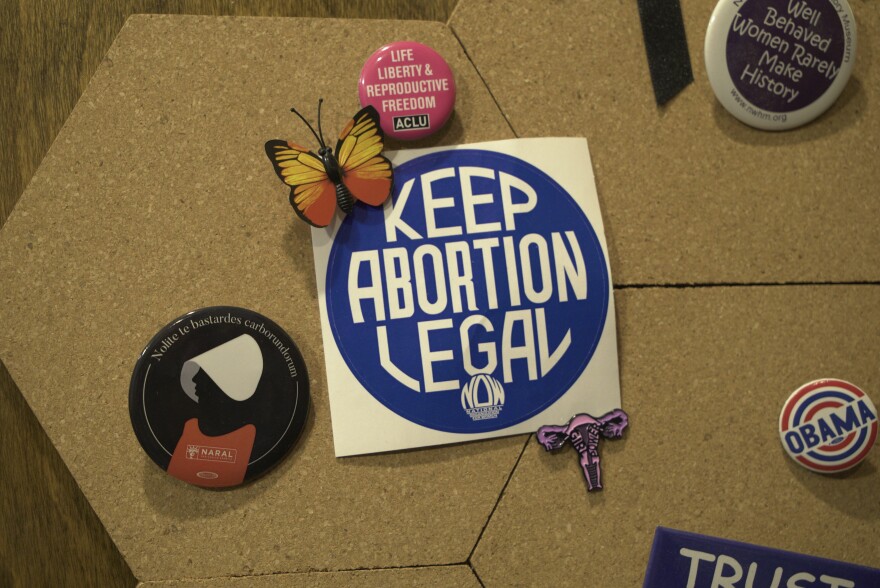Keeping educated and skilled workers from leaving Alabama appears to be an on-going concern. Efforts are underway at the State, regional, and local levels to attract and hold onto workers, including the Alabama Gulf coast. Surveys of those leaving Alabama for other parts of the U.S. cite a range of complaints as reasons for looking elsewhere to work and live. The Alabama Public Radio news team will examine problems and solutions to this issue in an on-going series of reports called “Should I stay, or should I go.” Recently, we talked about inclusion. This time around, the subject is exclusion.

On July first, the state of Alabama’s transgender bathroom law went into effect. It requires students to use facilities based on the sex listed on their birth certificates. Shortly after the U.S. Supreme Court struck down the Roe versus Wade decision guaranteeing abortion rights, the Alabama legislature announced its intent to use to ruling to challenging gender affirming medications for teens seeking to make a transition. The thinking being, “if the U.S. Constitution didn’t originally protect abortion rights, then why transgender rights?”
Neither action was what Todd Sears was hoping for.
“The governor, for example, has not been LGBTQ supportive,” said Sears. “Hate crimes are not protected. LGBTQ people are not protected against hate crimes. I should say. HIV is still criminalized in the state, and that's a challenge.”

Sears is CEO and founder of “Out Leadership.” It’s a New York based business consultant group that specializes in LGBTQ issues. His company just released its 2022 State LGBTQ+ Business Index. It examines around twenty data points nationwide, as they pertain to LGBTQ workers and their families. The study ranks States based on which are inclusive and those that aren’t.
Alabama did poorly.
Among the fifty States, Alabama came in at number forty three after a half percentage point drop from 2021. The reports focuses on issues like legal protections, youth and family support, political and religious attitudes, health and safety, and the work environment. The Gulf coast appears to be just a part of a larger picture when it comes to problems Alabama is creating when it comes to having a business climate that attracts and retains LGBTQ workers and their families. To put that shoe on the other “economic” foot, Sears maintains that treatment of gay workers is indicative of a broader issue nationwide.
“I actually like to say that LGBTQ people are the canary in the coal mine of a broader culture,” Sear said. “So what a company does to support their LGBT employees sends a message to all their employees about how they really feel about inclusivity. And so companies in Alabama have the opportunity to be forward thinking, to have the right policies.”
Sears contends that one in five Americans identifies as LGBTQ. If so, that’s a lot of the Gulf coast work force being targeted by legislation coming out of Montgomery. Sears says there’s an economic downside to what the State House, Senate, and the Governor are doing. Tourism is big business along the coast, with visitor tax dollars providing a reported thirty percent of Alabama’s annual general revenue. Sears says LGBTQ tourists have money to spend, and the state is telling them to go elsewhere.

“From an LGBTQ market perspective, we are the single largest tourist spender. Gay and lesbian people historically have always spent more on travel and entertainment and tourism than any other market across the board,” said Sears. “And so I would say less about what the Gulf Coast is doing, but what the golf course coast could be doing and attracting that talent and making it a making. Alabama and the Gulf Shore a desirable place for gay men both and gay and lesbian people and their families to come and spend time and spend their tourist dollars.
The presence of international companies in the Mobile area, like European aircraft builder Airbus, may offer a glimmer of hope for those working to make the Gulf coast more inclusive to LGBTQ workers and their families. The aviation manufacturer started its Pride@Airbus employee resource group in 2018 to help lead initiatives to oppose discrimination based on gender identity and sexual orientation. Todd Sears says, in addition to corporate support of the LGBTQ community, there’s he calls the “ally marketplace.”
“I estimate that it's about 8 to 10 times the size of the LGBTQ market because we have mothers and fathers and family members and brothers and sisters and colleagues, all of whom care about us as people,” Sears contends. “And they pay attention to what a state or a company does to support or discriminate.”
Ultimately, Sears says it’s in the best interests of the Gulf coast community, and its business base, to try to convince state lawmakers to change or oppose legislation that singles out the LGBTQ community if, for no other reason, it’s bad for business. “Out Leadership” businesses who want to oppose discrimination in Alabama can take one of a number of paths. The “embassy” model, for example, protects workers within the walls of the company, while the “advocate” model actively seeks to change the policies of the state or country in which they operate by virtue of being an economic engine.
“Shame is a pretty powerful human emotion,” Sears said of the advocate model. “And I like to say no one ever changed their mind because you call them a bigot. So that that would be a great outcome if folks in the state of Alabama said, ‘hey, you know what, maybe we could do better. And we'd like to know how.”






